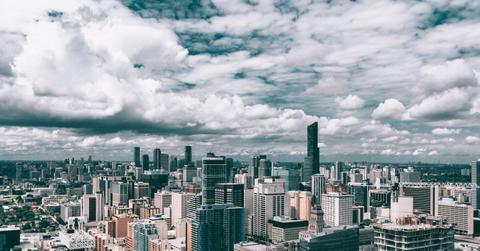This 19-Year-Old Is Working On Smog Filters For Developing Countries
At 13, Angad Daryani was creating low-cost 3D printers and workshops for people in India. He's now attempting to create a solution for developing countries to get rid of dangerous air pollution in their urban areas.
Updated Nov. 19 2020, 9:38 p.m. ET
Angad Daryani, a 19-year-old entrepreneur from India, has already been involved in a number of incredible startups and projects. He was responsible for bringing a cheaper 3D printer to India, and now he’s looking to get rid of the smog that’s hovering over many urban areas. The goal is to scale it up for developing countries until they switch to electric transportation.
At 13 years of age, Daryani created an open-source 3D printer called “SharkBot” and launched a manufacturing company. He wanted to create low-cost 3D printers for people in India. In Mumbai, he also launched a Maker’s Asylum that held workshops for people to work on skills such as using 3D printers, laser cutters, and power tools.
Daryani has also been responsible for the development of a haptic feedback e-reader for blind people, a pupil tracker with an Android tablet, and an electroencephalography-based wheelchair for people with neurological disorders. Back in 2016, he decided to pursue his next step, which was the development of an industrial filtering system for areas with heavy air pollution.
While many countries have significantly less carbon emissions than the United States and China, who were responsible for 44.8 percent of the world’s CO2 back in 2016, India comes in at third overall with a 6.2 percent share. They host the world’s top coal producer, Coal India, but they’ve shuttered 37 coal mines and the country won’t allow any more mines built after 2022.
These are great steps for developing countries to take, but that doesn’t currently solve the problem of dense smog in their cities. It could even get worse as more households are electrified but that power still comes from coal. Daryani, now studying at Georgia Tech University, is also developing a five-step process with a 20-foot tower that filters the air.
"I want things like this (tower) to be implemented on a scale until the time developing countries like India, China and (countries in) Africa actually reach an all-electric method of transportation," Daryani told CNN. "My eventual dream is to build companies that solve problems like this. That's what I tried to do before, and that's what I hope to do after school."
Like other projects that hope to rid the air of pollution, Daryani is looking to remove microscopic particles in the air. Known as PM2.5, this is particulate matter that has a diameter of less than 2.5 micrometers and has been linked to lung cancer. A study from Greenpeace India determined that PM2.5 levels rose by 13 percent from 2009 to 2015 with a direct link to coal-fired thermal power plants.
Instead of changing filters on a daily basis, which would be costly and time-consuming, Daryani is developing a way of containing the dust and carbon in two large tanks that would be emptied twice a month. There’s also a chance that captured carbon could be used in other ways, such as creating ink.
